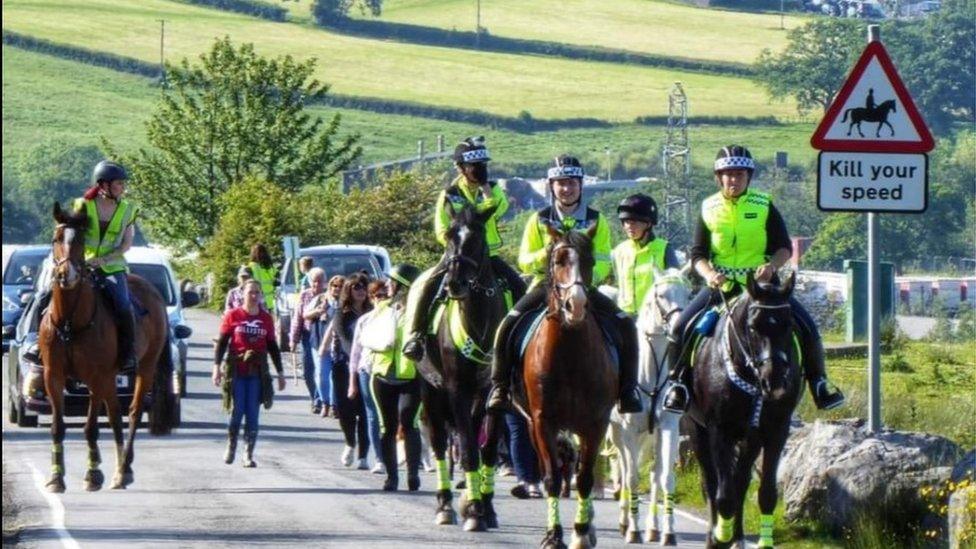20mph speed zones: Wales trials begin in more residential areas
- Published
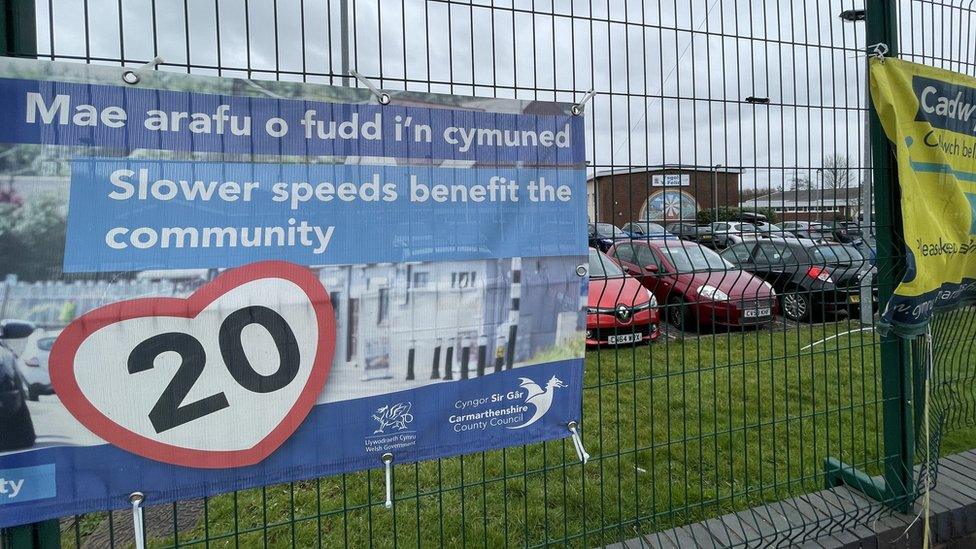
A sign of things to come? Most residential roads in Wales could see 20mph restrictions next year
More than half of people in Wales oppose cutting the speed limit in residential areas to 20mph, according to a public consultation.
Trials creating 20mph zones are being rolled out across parts of Wales.
It comes as default speed limits look set to be cut from 30mph to 20mph in built-up areas by 2023 under Welsh government plans.
However opponents said the changes would increase journey times, add to congestion and anger drivers.
More than half of the 5,607 people who responded said they were not in favour.
'Not a representative sample'
But the conclusion said the self-selecting consultation was "not a representative sample of the population" and was not a reflection of the general public view due to an "organised campaign".
Four of the the pilot schemes are already running, while all of them will be rolled out by the end of March.
St Dogmaels, Pembrokeshire
Llanelli North, Carmarthenshire
St Brides Major, Vale of Glamorgan
Buckley, Flintshire
North west Cardiff
Cilfrew Village, Neath Port Talbot
Abergavenny, Monmouthshire
Severnside, Monmouthshire
The schemes in St Dogmaels, Llanelli, St Brides Major and Buckley are already under way, while the largest speed limit reduction trial is beginning now in north Cardiff.
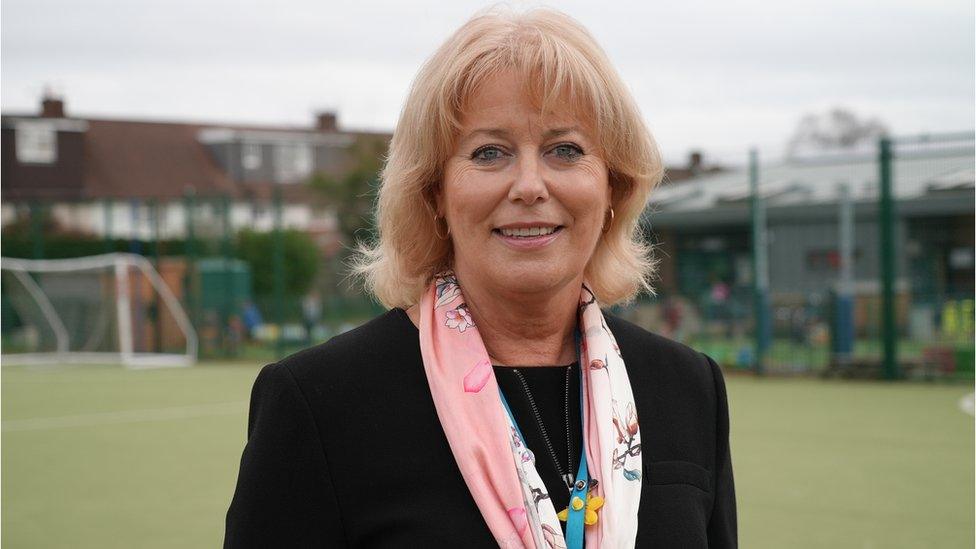
Head teacher Ann Griffin said speed restrictions would promote cycling and walking
Ann Griffin, head teacher at Whitchurch Primary School, Cardiff, said: "Reducing the speed limit on our roads will not only make them safer but also help to promote alternative, greener forms of transport like walking and cycling.
"Active travel is a key part of the curriculum at our school and our children play an active role in encouraging others to make more sustainable and active travel choices."
Welsh government road accident statistics, external show far more people are injured or killed in incidents in 30mph zones than 20mph zones.
Most 'strongly against'
In 2020, 1,007 people were injured in car crashes and 369 pedestrians injured in 30mph zones in Wales. Those figures compare to 50 and 27, respectively, in 20mph zones.
The risk of being killed is almost five times higher in collisions between a car and a pedestrian at 31mph compared to 18.6mph.
However, more than half of the respondents to the Welsh government consultation, external on the proposal said they were not in favour - with most "strongly against" - of the speed cut on roads with street lights.
Less than half of respondents (47%) were in favour, believing it would improve road safety and quality of life.
In contrast, a national survey, external of 1,000 people in 2020 found support among 80% of adults for a 20mph speed limit in their area.
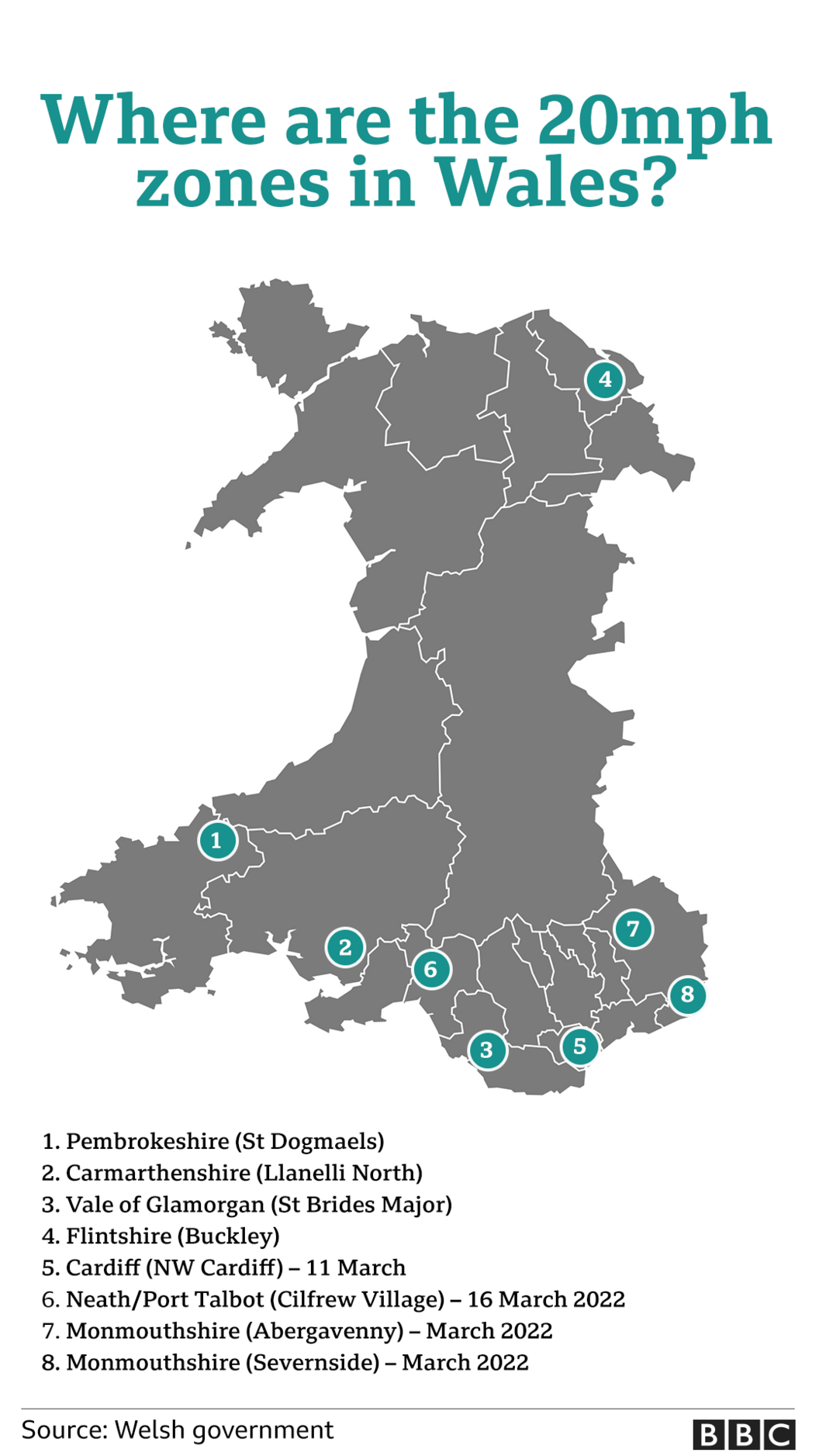

Adie Drury from Buckley said on BBC Radio Wales Phone In: "Buckley is on a hill so every road coming in has an incline. Trying to do 20mph on a really steep hill is causing chaos. It's causing more emissions.
"There are through roads that are nowhere near pedestrian areas or the town centre ,which were streets that both Buckley town council and Flintshire county council didn't want to be 20mph."
David from Tonypandy said driving slower and in a lower gear would increase emissions, while Carl from Cardiff said more should be done to encourage people to use park and ride schemes which are "too expensive" to use.
However Elinor Williams, of Llanedi, Carmarthenshire, supported the reduction because motorists "have no respect" for current limits.
"The road is just too dangerous for children to walk or cycle to school, which is unacceptable," she said.
"We've taken measures into our own hands recently and started putting our car in the road to slow the traffic."
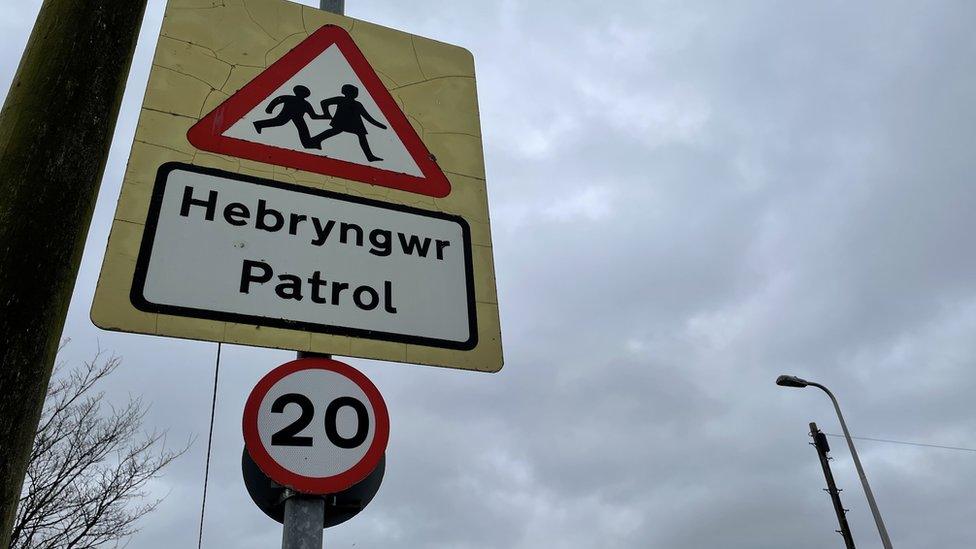
The Welsh government says it wants 20mph to be the default limit for residential areas
Deputy Minister for Climate Change Lee Waters said it would take time to convince people of any change.
Mr Waters, who also has responsibility for transport, said: "When it comes to speed limits people tend to see red mist. Typically they want them outside their homes but not on their way to work.
"At the moment we have little strips of 20mph limits that start and stop. But research shows that because they're only small strips, people take no notice of the limit, motorists are ignoring it and police aren't enforcing it.
"Other parts of the country have seen far better compliance when whole areas are reduced."
He added: "The evidence is clear, decreasing speeds not only reduces accidents and saves lives, but helps improve people's quality of life - making our streets and communities a safer and more welcoming place for cyclists and pedestrians, whilst helping reduce our environmental impact.
"As with any cultural change we know it takes time to win hearts and minds and inevitably we will face some challenge, but I am confident that if we all work together we can make the necessary changes that will benefit us now and in the future."
- Published3 March 2022
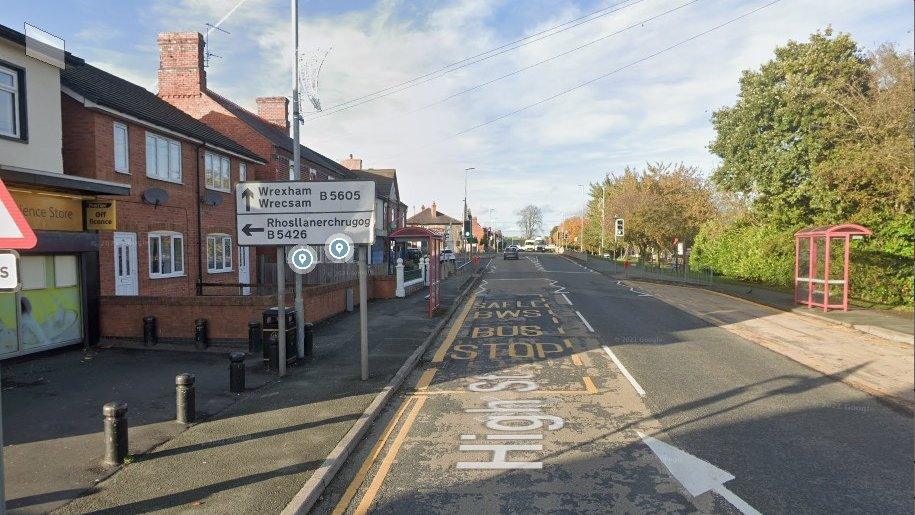
- Published27 September 2021
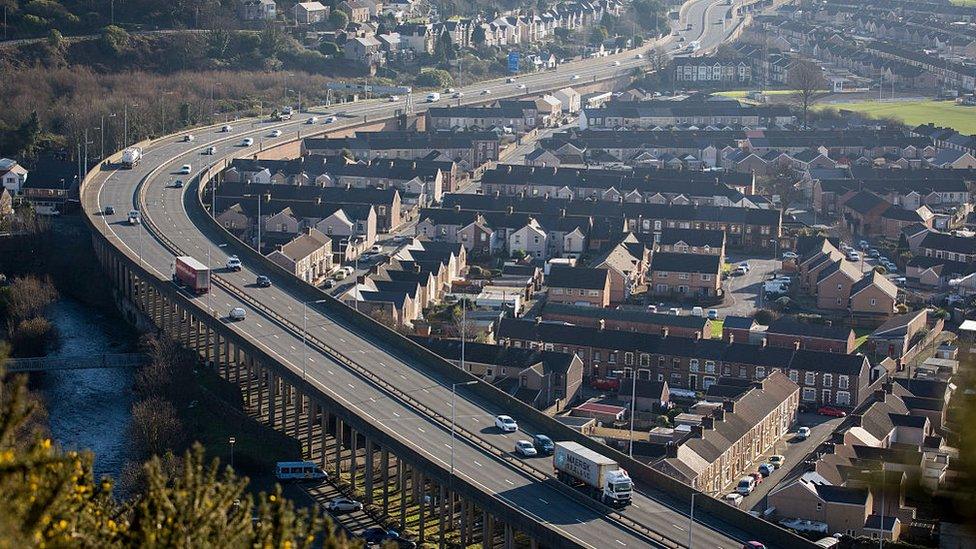
- Published19 September 2021
